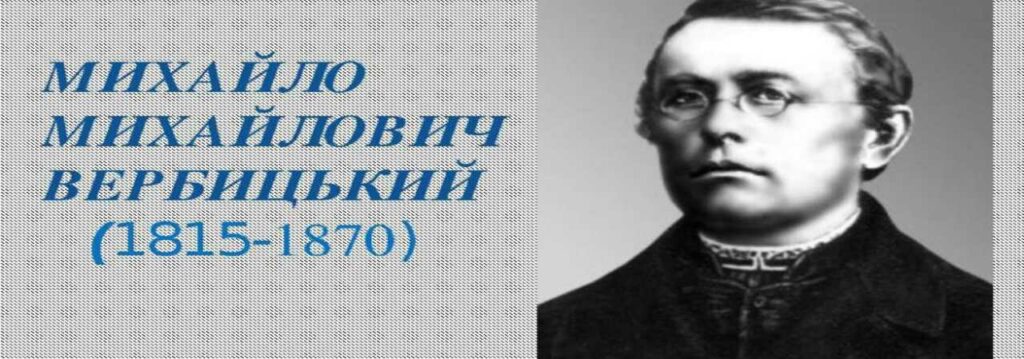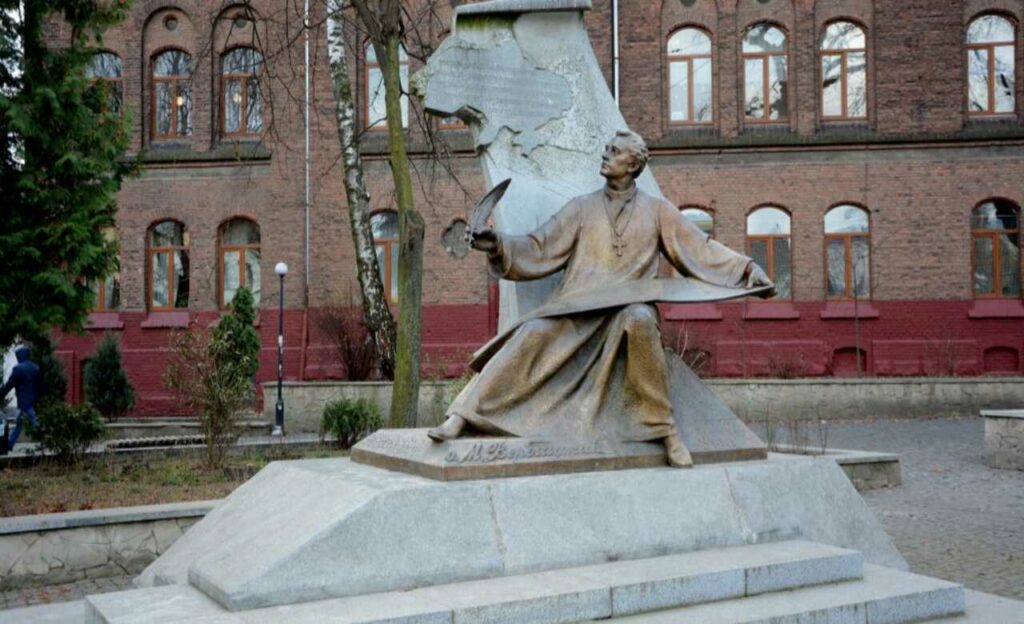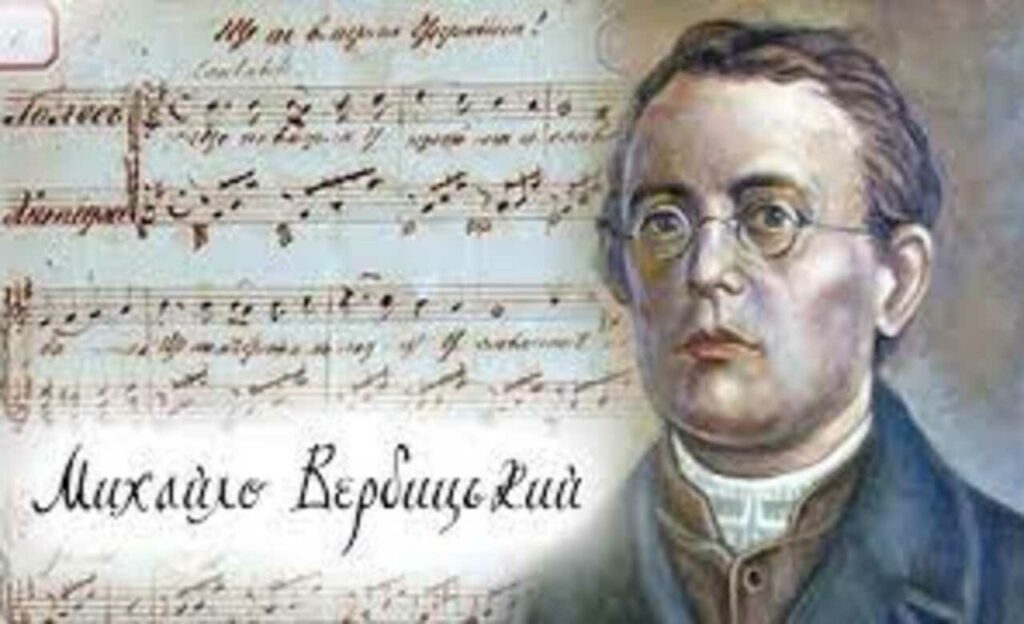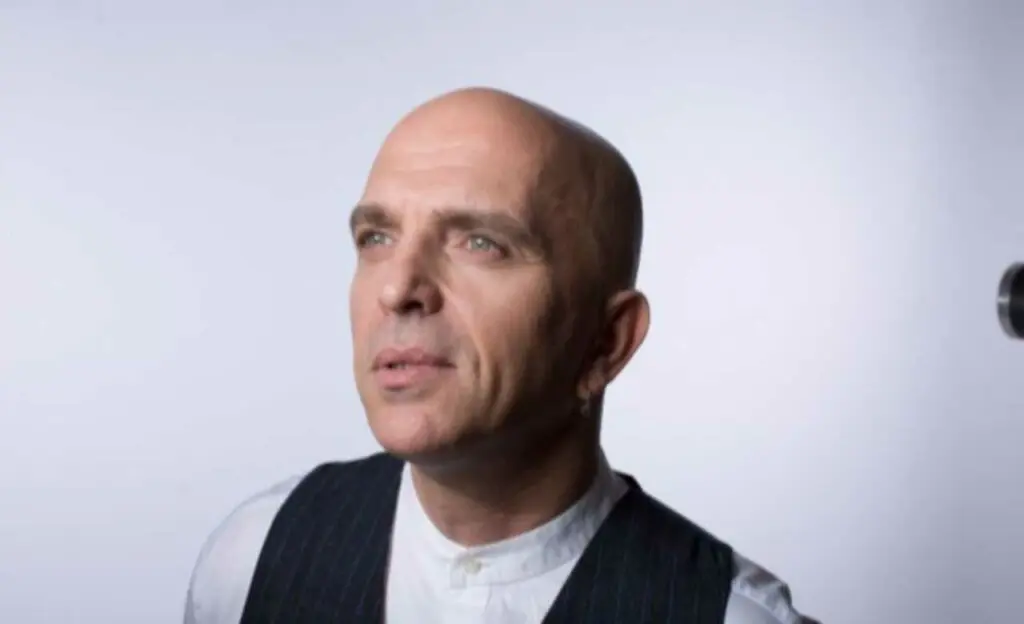Mikhail Verbitsky is a real treasure of Ukraine. Composer, musician, choir conductor, priest, as well as the author of the music for the national anthem of Ukraine - made an undeniable contribution to the cultural development of his country.

“Mikhail Verbitsky is the most famous choral composer in Ukraine. The musical works of the maestro “Izhe cherubim”, “Our Father”, secular songs “Give, girl”, “Poklin”, “De Dnipro is ours”, “Zapovit” are the pearls of our choral music. The composer's overtures, in which he ideally combines folk art with modern motifs, are the first good attempt at Ukrainian symphonic music in Ukraine…” writes Stanislav Lyudkevich.
The creative heritage of the composer
One of the most valuable heritage of Ukrainian culture. Mikhail is one of the representatives of the national composer school. The high level of Verbitsky's musical works, the mastery of composing compositions give him the right to call him the first Western Ukrainian professional composer. He wrote with the blood of his heart. Michael is a symbol of the Ukrainian national revival in Galicia.
Mikhail Verbitsky: Childhood and youth
Maestro's date of birth is March 4, 1815. His childhood years were spent in the small village of Javornik-Ruski near Przemysl (Poland). He was brought up in the family of a priest. The head of the family died when Mikhail was 10 years old. Since that time, a distant relative, Vladyka John of Przemysl, has been raising him.
Mikhail Verbitsky studied at the lyceum, and then at the gymnasium. He was good at studying various sciences. He grabbed everything on the fly. When Bishop John founded a choir at the Przemysl cathedra, and later a music school, Michael became acquainted with music.
In 1829, the debut performance of the choir took place, with the participation of Verbitsky. The performance of the singers was well received by the local audience and dignitaries. After such a warm welcome, John invites the popular composer Alois Nanke to the educational institution.
After Mikhail came under the care of Nanke, he revealed his musical abilities. Verbitsky suddenly realized that improvisation and composition attracted him.
The choir's repertoire played an important role in shaping Verbitsky's composing abilities. The choir's repertoire consisted of immortal works by J. Haydn, Mozart, as well as Ukrainian maestro Berezovsky and Bortnyansky.
The spiritual works of Bortnyansky had a great influence on the music of Western Ukraine.
The works of the maestro were also admired by Mikhail, who gravitated towards improvisation. During this period of time, monophony dominated Ukrainian church music. Bortnyansky managed to introduce professional polyphony into his works.

Education in the seminary
After some time, Mikhail Verbitsky entered the Lviv Theological Seminary. Without much effort, he mastered the guitar. This musical instrument will accompany Verbitsky in the darkest times of his life. In addition, he took up the position of director of the choir.
During this period of time he composed a number of excellent compositions for the guitar. For our time, the "Instruction of Khitara" has been preserved. Verbitsky was the soul of the company. He was expelled several times from the Lviv Conservatory for wild songs. He was never afraid to express his own opinion, for which he was repeatedly punished.
When he was expelled from the educational institution for the third time, he did not resume. By that time, he had a family and the need to provide for his relatives.
He turns to religious music. During this period of time, he composed a complete Liturgy for mixed choir, which is still heard today in many churches in his native country. At the same time, he presented one of the most recognizable compositions - "Angel Vopiyashe", as well as a number of other compositions.
Mikhail Verbitsky: Theatrical life
At the end of the 40s, theatrical life gradually improved. For Verbitsky, this means one thing - he starts writing musical accompaniments for a number of performances. The numbers that were staged on the stage of the best theaters in Lviv and Galicia, for the most part, were translated both from Ukrainian drama and literature, and from Polish, French.
Music played an important role in staging performances. She conveyed the mood of the plays and saturated individual scenes with emotionality. Mikhail composed musical accompaniment for more than two dozen performances. You can not ignore his creations "Verkhovyntsi", "Kozak i hunter", "Protsikha" and "Zhovnir-charivnik".
The political passions that reigned on the territory of Ukraine contributed to the fact that the Ukrainian theater ceased to exist and interest the local public. Michael no longer had the opportunity to create.
In 49, a theater group was formed in Przemysl. Mikhail was listed in its ranks as a composer and actor. He continued to compose musical works.
At the end of the 40s, he composed music for the text by Ivan Gushalevich "Peace be with you, brothers, we bring everything." Some time later, in Lvov, local activists organized the theater "Russian Conversation". For the presented theater, Verbitsky composes the brilliant melodrama "Pidgiryan".
The main stages of creativity Mikhail VerbitskOn
As the composer himself said, his work can be divided into three main stages: musical works for the church, music for the theater and music for the salon. In the latter case, Verbitsky knew what kind of music his contemporaries wanted to hear. To be useful to society - that's what Michael wanted. His first biographer, Sidor Vorobkevich, recalls forty solo compositions with guitar accompaniment and several more with piano accompaniment.
Due to difficult life circumstances, he could not receive the priesthood for a long time. Mikhail had to cancel his studies several times. In addition, he was forced to move from one village to another several times. Only in 1850 did he graduate from the Lviv Seminary and become a priest.
For several years he served in the small settlement of Zavadov Yavorovsky. During this period of time, two children are born to him - a daughter and a son. Alas, the daughter died in infancy. Verbitsky was very upset by the loss of his daughter. He got depressed.

In 1856, he served in the Intercession Church, which was located in Mlyny (now Poland). There he took up the position of a Greek Catholic priest. It was here that he spent the last years of his life.
It is worth noting that Mikhail Verbitsky lived extremely poorly. Despite the prestigious positions at that time, the rich musical heritage - Verbitsky was not sponsored. He did not seek wealth.
The history of the creation of the National Anthem of Ukraine
In 1863, he composed music to the poems of the Ukrainian poet P. Chubinsky "Ukraine has not died yet." The history of the creation of the anthem began a year earlier. It was at this time that Paul composed the aforementioned poem.
Almost immediately after writing the poem, Chubinsky's friend, Lysenko, wrote a musical accompaniment to the verse. The written melody sounded on the territory of Ukraine for some time, but did not find wide distribution. But only in the co-authorship of Verbitsky and Chubynsky the anthem was established in the memory of the Ukrainian people.
In the wake of the heyday of Ukrainian patriotic and spiritual life, in the 60s of the XIX century, in one of the Lviv magazines, the poem “Ukraine has not died yet” was published. The verse impressed Mikhail with its lightness and at the same time patriotism. At first he wrote music for a solo performance accompanied by a guitar, but he soon worked hard on the composition, and it was perfectly suited for the performance of a full-fledged choir.
“Ukraine has not yet died” is distinguished by the breadth of understanding the historical fate of the Ukrainian people. As a national anthem, the piece of music was recognized by Ukrainian poets.
Mikhail Verbitsky: Details of his personal life
It is known that he was married twice. The first woman who managed to decorate the heart of the composer was a charming Austrian named Barbara Sener. Alas, she died early.
Soon he married a second time. Until recently, it was believed that the second wife was a Frenchwoman. But this assumption was not confirmed. Unfortunately, the second wife also did not live long. She gave birth to a son from Verbitsky, whom the couple named Andrey.
Interesting facts about Mikhail Verbitsky
- Mikhail's favorite musical instrument is the guitar.
- During his short life he composed 12 orchestral rhapsodies, 8 symphonic overtures, three choirs and a couple of polonaises.
- Biographers confirm that he lived in poverty. Often there were just apples on his table. The hardest times came in the autumn-winter period.
- He dreamed of composing music for Taras Shevchenko's poems.
- Michael became a priest in order to improve his financial situation. Serving God was not his calling.
The last years of the life of Mikhail Verbitsky
Until the last days of his life, he did not leave his main business - he composed musical works. In addition, Mikhail wrote articles and was engaged in pedagogical activities.
He spent the last years of his life in Mlyny. He died on December 7, 1870. At the time of his death, the composer was only 55 years old.
First, an ordinary oak cross was installed on the grave of the famous composer. But in the mid-30s of the last century, a monument was erected at the burial site of Verbitsky.



